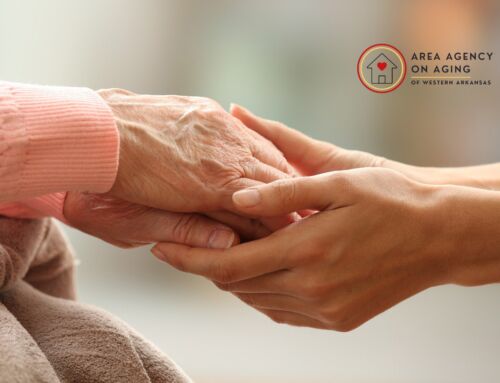If your aging parent wants to stay at home, you’re not alone. Many families face similar concerns: What kind of care is needed? Who helps with daily tasks? What if dementia, hygiene, or safety are involved? We’ll outline the in-home care services that matter most, so you’ll know how to prepare and support your loved one’s independence and well-being.
Key Takeaways:
- Non-medical care supports daily tasks (e.g., bathing, meals); skilled care involves medical services from licensed professionals.
- ADLs include dressing, toileting, and eating; IADLs include shopping, cooking, and managing finances.
- Specialized services: dementia care, fall prevention, and behavior monitoring are also available.
- Signs of needed care: memory loss, poor hygiene, falls, isolation, emotional decline.
- Average cost: $23–$35/hour; live-in care costs $250–$350/day.
- Medicare covers short-term skilled care; Medicaid covers both medical and personal care (eligibility varies by state).
- IHSS (CA) helps low-income seniors; a doctor’s note and eligibility evaluation are required.
- Caregivers assist with hygiene, meds, meals, safety, and emotional support.
- Live-in vs hourly: live-in is cheaper per hour for all-day needs; hourly fits part-time care.
- Vet benefits & long-term care insurance may also reduce costs if the criteria are met.
- Safety/legal: do background checks, use written contracts, and keep care plans updated.
- Continuity: review care plans regularly; use health-monitoring tools and respite care.

Exploring In-Home Care Services in Arkansas: A Guide for Families
As loved ones age or face mobility challenges, daily routines may become harder to manage. Fortunately, in-home care services provide a way for seniors and individuals with disabilities to stay in their homes while receiving the support they need. Whether it’s help with bathing, preparing meals, or just having someone nearby to talk to, in-home care is a practical and compassionate solution.
In Arkansas, families can turn to trusted providers like Area Agency on Aging of Western Arkansas (AAAWA) for personalized care. If you're unsure where to begin, this guide will help you understand the types of care. Specifically, it will explain who needs them, how to choose a caregiver, and how to manage costs. As you read, you’ll gain insight into navigating the complex world of in-home care, ensuring you make informed decisions every step of the way.
A Variety of In-Home Care Services Are Available
The first step in choosing care is understanding what’s available. In-home care services generally fall into two categories: non-medical care and, conversely, skilled home health care.
Non-medical care supports daily activities such as:
- Bathing and dressing
- Light housekeeping
- Meal preparation and clean-up
- Medication reminders
- Companionship and social interaction
- Shopping and errands
- Transportation assistance
These services don’t require a doctor’s order and are ideal for individuals who need help with basic tasks but do not require medical treatment.
Skilled care, on the other hand, includes:
- Wound care
- Injections and medication management
- Physical, occupational, or speech therapy
- Post-surgical care
- Chronic condition monitoring (like diabetes or heart disease)
These type of in-home care services are delivered by nurses or licensed therapists and typically also require a doctor’s referral. Medicare, Medicaid, or private insurance often cover it when it's medically necessary.
You can learn more about these services through the AAAWA Home Health and Personal Care Programs.
In-Home Caregivers Assist With Everyday Living Needs
In-home caregivers help with two important areas of daily life: Activities of Daily Living (ADLs) and Instrumental Activities of Daily Living (IADLs).
ADLs include:
- Dressing
- Bathing or toileting
- Moving around the home safely
- Eating meals
- Grooming and hygiene
IADLs include:
- Preparing meals
- Managing medications
- Using the telephone
- Shopping or running errands
- Paying bills and organizing paperwork
When a loved one begins to struggle with these tasks, in-home care can step in to help—without removing their independence.
Specialized In-Home Care Services Address Unique Needs
Some individuals need more than just help with chores. They may also face conditions like dementia, Parkinson’s, or mobility issues.
In these cases, caregivers may also be trained to:
- Provide memory support for Alzheimer’s or dementia
- Establish daily routines to reduce confusion or anxiety
- Monitor safety to prevent wandering or agitation
- Assist with walking devices, handrails, or fall-prevention techniques
- Offer emotional support or companionship for those feeling isolated
At AAAWA, care plans are always tailored to the individual. Personalized support is crucial because everyone's needs are unique. You can find more about their services here.
Recognizing When In-Home Care Services May Be Needed
Families often ask when it’s time to seek help. The signs are usually right in front of us—we just need to know what to look for.
Here are some common indicators:
- Forgetting to take medication or missing meals
- Wearing the same clothes for days
- Unexplained bruises or frequent falls
- Leaving doors open or appliances on
- Withdrawing from social activities
- A home that appears unusually cluttered or unsafe
Changes in hygiene, grooming, or housekeeping are often among the earliest signs that someone needs help.
Emotional Changes Can Also Signal It’s Time for Help
It’s not just physical needs that matter; indeed, emotional well-being is just as important.
Moreover, if your loved one seems lonely, sad, or disinterested in things they used to enjoy, companion care might be a good option. These caregivers not only provide conversation, but they also share hobbies, read together, or go for short walks. Consequently, having someone to talk to can make a world of difference, especially for seniors who live alone or have recently lost a spouse or pet.
Choosing the Right Caregiver or Agency Matters
Once you decide that in-home care is needed, the next step is finding someone you trust.
When looking for a caregiver, consider the following:
- Training and experience: Have they worked with people who have similar needs?
- Background checks: Are they screened and approved by a reputable agency?
- References and reviews: Have others had a positive experience with them?
- Personality fit: Do they show patience, kindness, and respect?
You should also find out if the caregiver has special skills, such as dementia training or fall prevention techniques. A good caregiver knows how to help while preserving the individual’s dignity.
Choosing Between Private Hire and an Agency
There are two main ways to hire a caregiver: privately or, secondly, through an agency.
Private hire may seem more affordable at first, but it comes with responsibilities. Families must manage:
- Taxes and payroll
- Scheduling and backups
- Liability and insurance
- Background checks
Home care agencies like AAAWA handle all of that for you. They take care of training, legal compliance, and also finding a replacement if a caregiver is unavailable.
While agencies may cost slightly more per hour, they also offer peace of mind and reliable service. They often provide care coordinators who help create personalized plans and adjust services as needs change.
Red Flags to Watch For When Choosing a Provider
If you’re comparing agencies or caregivers, look for these warning signs:
- Vague pricing or unclear service terms
- No written care plan or schedule
- Lack of training credentials or references
- Poor communication or unreturned phone calls
- Unprofessional behavior during interviews or visits
Choosing the right caregiver is a big decision. Take your time and also trust your instincts.
Understanding the Cost of In-Home Care Services
Families are often surprised by how flexible the cost of in-home care can be. Indeed, it largely depends on the type of care needed and how often it’s provided.
For instance, average hourly rates in Arkansas range from $23 to $35, depending on the caregiver’s training and the complexity of care. Live-in care may cost $250 to $350 per day, but it covers 24-hour support.
Shorter visits—like help with bathing or meals—can be scheduled a few times per week, significantly reducing costs.
Payment Options for In-Home Care Services
There are several ways to cover the cost of care, including:
- Medicaid or ARChoices In-Home Care Program (based on eligibility)
- Medicare (for skilled home health services)
- Veterans benefits, such as VA Aid and Attendance
- Long-term care insurance
- Private pay or family contributions
- Support from local organizations and community grants
Area Agency on Aging of Western Arkansas can help guide you through available funding options and also connect you with programs you may qualify for.
Getting Started With In-Home Care Services
If you think in-home care might be right for your loved one, here’s how to begin:
- First, talk with your family about what kind of help is needed.
- Next, call AAAWA at 479-783-4500 or reach out through their contact form.
- Then, schedule an assessment to review your loved one’s needs.
- Afterward, create a personalized care plan that fits their routine, preferences, and health status.
- Finally, begin care and continue to adjust as needed.
Starting care can feel overwhelming, but having a trusted team makes all the difference.
Let’s Connect and Support Your Family
Start Your Journey With In-Home Care Today
If you're exploring in-home care services for yourself or a loved one, Area Agency on Aging of Western Arkansas is here to help. Our compassionate team will not only work with you to understand your needs but also build a personalized care plan. Furthermore, we ensure that all aspects of care are addressed, providing peace of mind and support for your family. From personal care to transportation and homemaking, AAAWA supports independence with dignity. Contact us today to get started.


